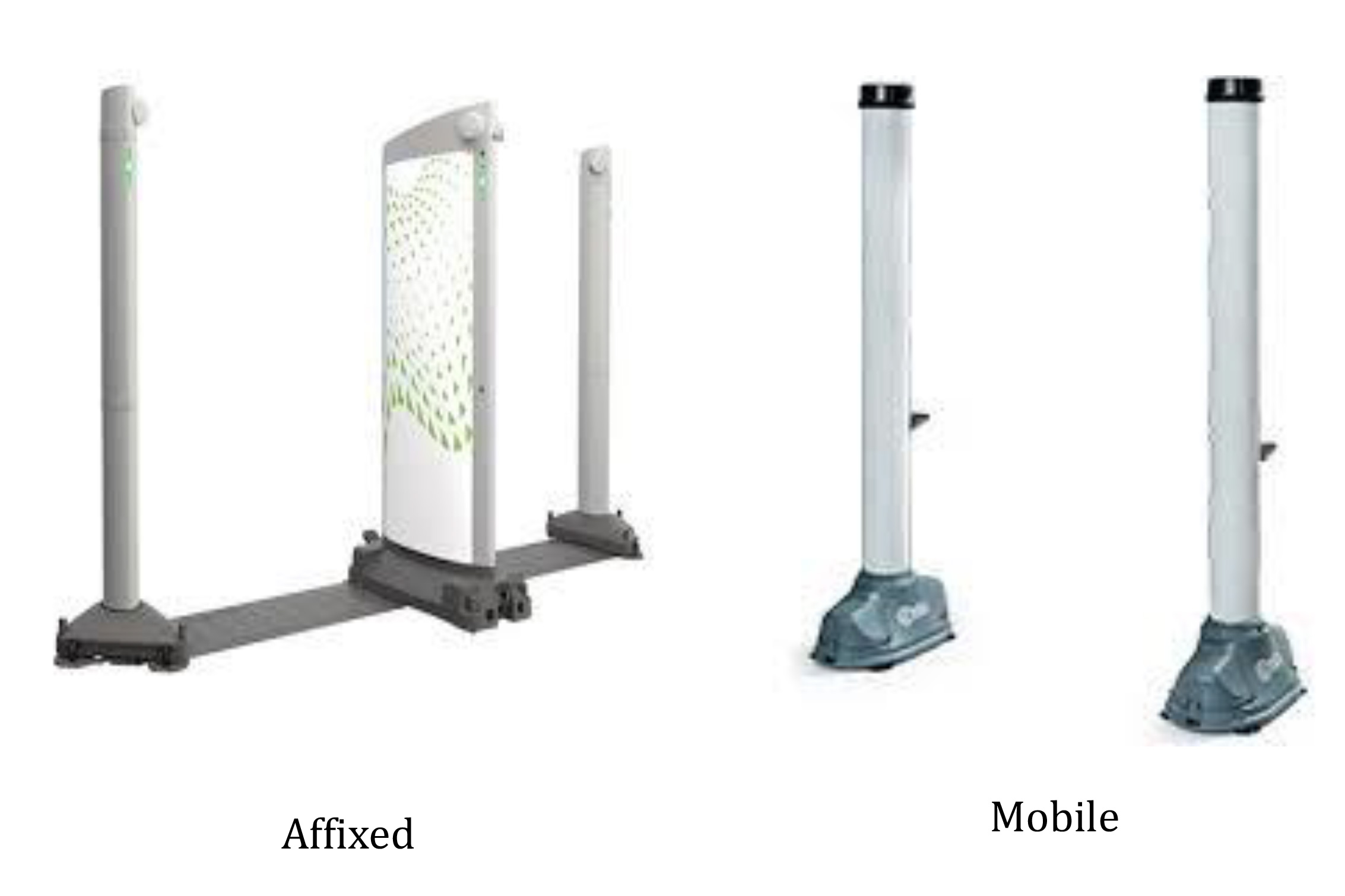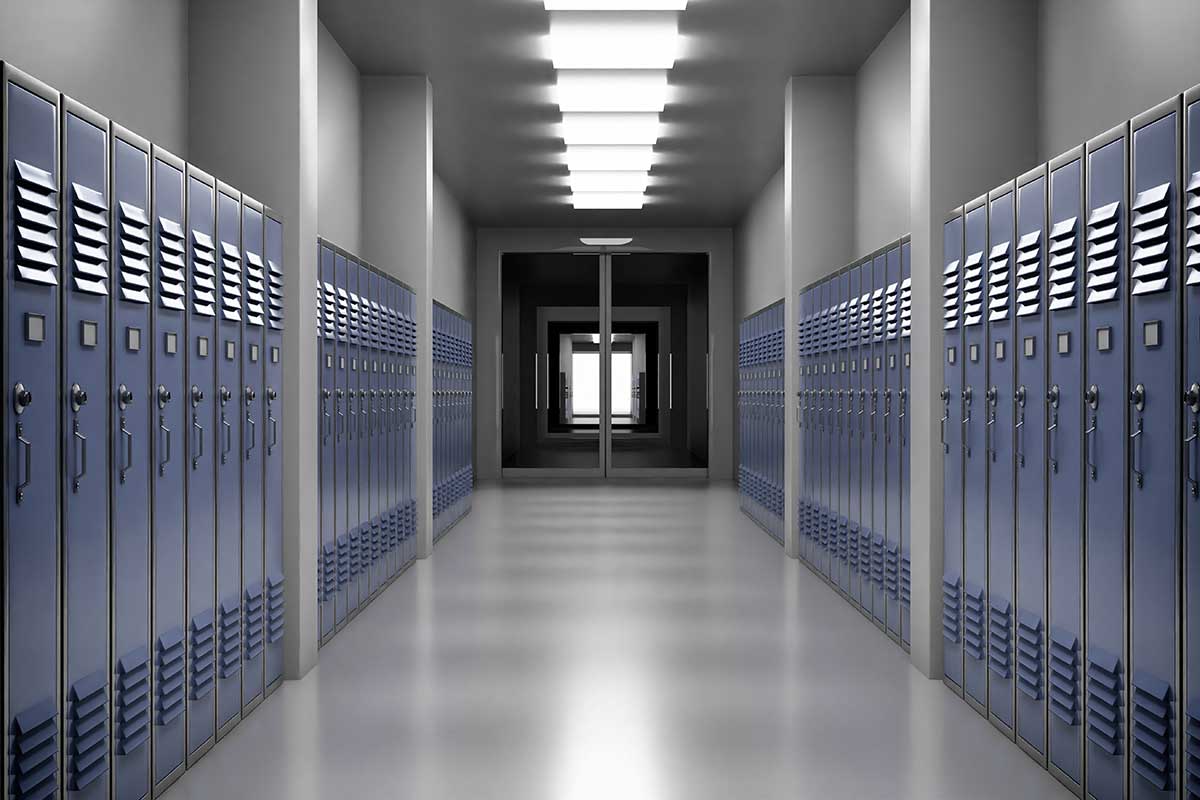A “proactive” pilot program aimed at beefing up security could be on the way for two Alexandria City Public Schools this spring: weapon detectors.
The equipment — called “advanced weapons abatement technology” in a recent presentation before the Alexandria City School Board — would be installed in late April after a community feedback period in March. The program would then go live in May, if the board votes to move forward.
“I want everyone to know that this is a preventative measure. It’s not a reactive measure to what’s going on in our world right now,” interim Superintendent Melanie Kay-Wyatt said at the February 2 board meeting. “These are proactive measures around safety.”
ACPS Facilities and Operations Chief Alicia Hart told the board, which approved a community engagement and feedback period 7-0, that she and her team did not make the weapon detector proposal lightly.
“We aim to promote a security posture that maintains the core value of welcoming schools,” Hart said. “Yet, we are in a place where the actions of one can impact the lives of many. And in everything that we do, we must consider the safety of more than 15,000 students and 2,500 staff members that are within our buildings every day.”
There were 28 reported incidents involving weapons during the 2021-2022 school year. Thirteen of those were in the first semester and 15 were in the second semester.
In addition, according to Hart, ACPS continues “to receive anecdotal reports of the prevalence in which weapons may be entering our facilities. These reports are coming from students, staff, and families. And while we have implemented a number of measures to harden our facilities against threats, we absolutely feel we should implement proactive measures to lessen the ability of weapons to make their way onto our campuses.”
Hart said the new system isn’t like traditional metal detectors.
The detectors are “less invasive than the handheld detection devices and allow stakeholders to walk through the equipment at a normal pace,” Hart said.
The new equipment also uses artificial intelligence to detect most weapon threats and can tell officials where the concealed weapon is with a photograph, according to Hart, though the school system hasn’t picked a specific equipment vendor yet.

It remains unknown exactly which schools would be part of the new weapon detector pilot program.
“I would respectfully ask … if we do not have to review those details publicly, I would not like to at this time,” Hart said when asked where the equipment will be installed. “I think the team and I need more time to just be able to discuss those details with staff internally. And then will we be able to provide notice prior to moving forward at those particular schools.”
Hart said incidents with weapons “tend to happen at our secondary level” — middle schools and Alexandria City High School, the city’s only high school. But, “we have not yet said no to an elementary school pilot.”
School Board Member Willie Bailey said he’s for the program “110 percent” after referencing the school shooting in Newport News where a 6-year-old shot a teacher.
“It seems like every other day, there’s something going on at a school in the United States. And God forbid, we do not want that to happen here in Alexandria City and our school system,” Bailey said.
Student Representative Emily Milton, from Alexandria City High School, told the board that installing weapon detectors will not go over well with students.
“I don’t want anyone to feel unsafe at all, but putting a metal detector, or a metal detector-type of equipment, I think, in schools — it doesn’t help me any. It makes me feel more unsafe, honestly, and I feel like it is a bad look for our school if we put them in there,” Milton said.
Kay-Wyatt countered that it would be more uncomfortable to make a call “to say there’s an injury or tragedy to someone in your family. I take this very seriously.”
She said people will “probably feel differently about” the detectors once they see them.
“It’s like you’re truly walking through something in a library, the little small things. It’s not intrusive … it’s not going to ding and ring and distract you and draw attention like you might think you simply just walk through it,” Kay-Wyatt said.
Torenzo Ricks, another student representative, said he’s received a call before telling him there was someone who came into a building with a weapon.
“Thankfully, they didn’t use it. But they did call my family as a precaution. … It’s not pleasant, and it’s not pretty,” Ricks said. “But I would hate the feeling, or the fact of having to hear students that ‘Oh, I have to walk into a building and feel like I’m under constant surveillance.'”
“It’ll be weird,” he said. “But at the same token, it really just has to be done.”
The school board will vote to formally approve moving forward with the pilot program after the engagement and feedback period in March.
Alexandria isn’t the only Northern Virginia school system debating the implementation of weapon detectors. Prince William County is also considering it.
For more stories like this, subscribe to Northern Virginia Magazine’s News newsletter.


